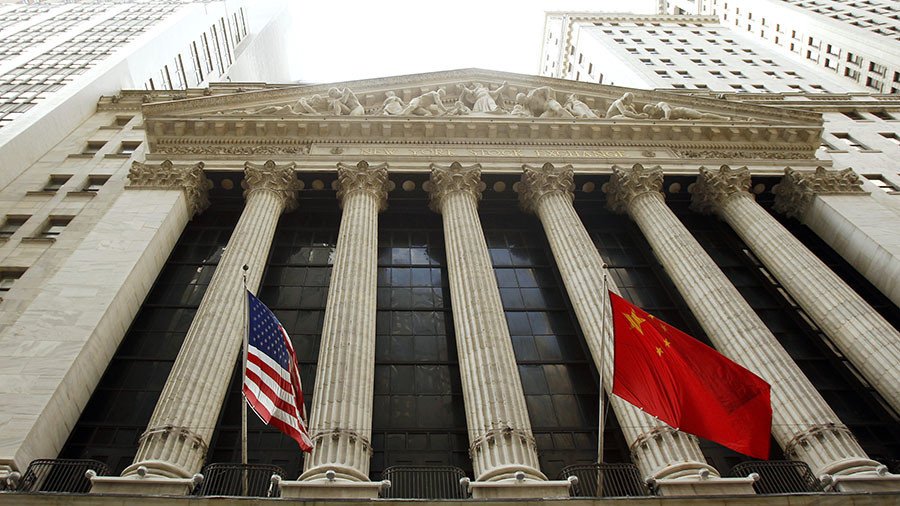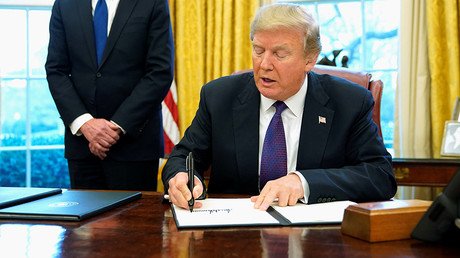Global markets drop sharply over fears of trade-war escalation

Markets across the world plunged after the US imposed $60 billion in tariffs on Chinese goods, and Beijing slapped $3 billion on American imports in retaliation.
Wall Street is bracing for another sell-off on Friday after US stocks tumbled sharply during the previous day's trading, with the Dow Jones dropping almost three percent. The S&P 500 and the NASDAQ fell by about 2.5 percent. Selling continued in Asia on Friday with Japan's Nikkei closing 4.51 percent lower. The Hong Kong exchange lost 2.45 percent, while the main index in Shanghai dropped 2.86 percent. The Kospi in Seoul was down 3.37 percent.
'It’s going to be worse than a disaster' – Jim Rogers https://t.co/glasS5EQM6
— RT (@RT_com) March 22, 2018
In Australia, which reportedly sells more iron ore to China than any other country, the ASX200 benchmark index was off nearly two percent. In Europe, London's FTSE 100 dropped half of one percent during Friday's afternoon trading, while Germany’s DAX and France’s CAC were down over one percent.
In the currency markets, the US dollar plummeted to near one-month lows. Against a basket of its rivals, the greenback dropped 0.3 percent to 89.62, taking its weekly losses to about 0.7 percent, its biggest drop in a month.
Trump’s tariff bombshell could ignite full-blown trade war & Russia could be the winner https://t.co/Gsh9QWxA2epic.twitter.com/ZviFWPrWV8
— RT (@RT_com) March 5, 2018
At the same time, the Japanese yen, a generally accepted safe haven, raced to its highest level in more than 16 months. The Swiss franc strengthened with investors seeking shelter in perceived low-yielding currencies.
“Trade wars, the spike in dollar funding costs and a tricky quarter end means that currency markets can become a bit messy going into next week,” said Marc Ostwald, a global strategist at ADM Investor Services International in London, as quoted by Reuters.
For more stories on economy & finance visit RT's business section














